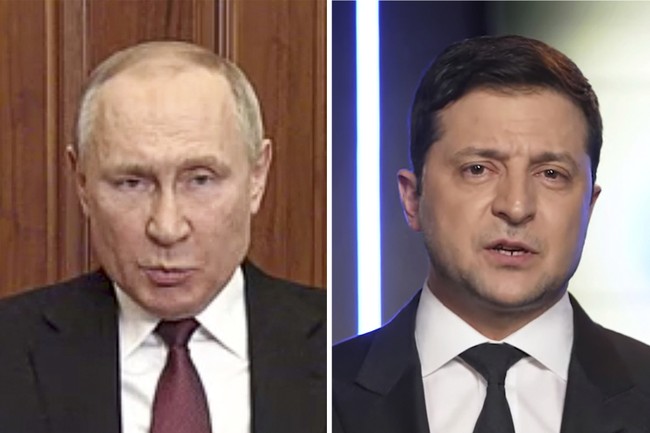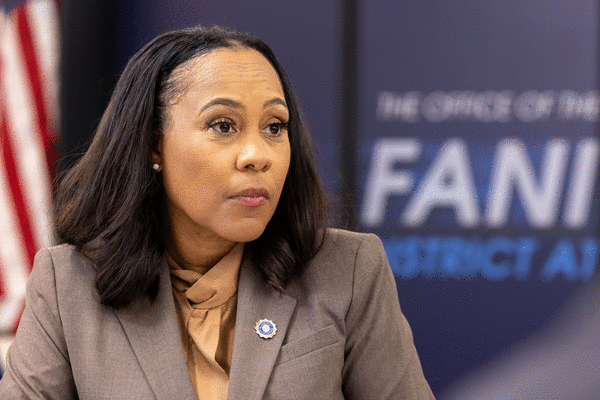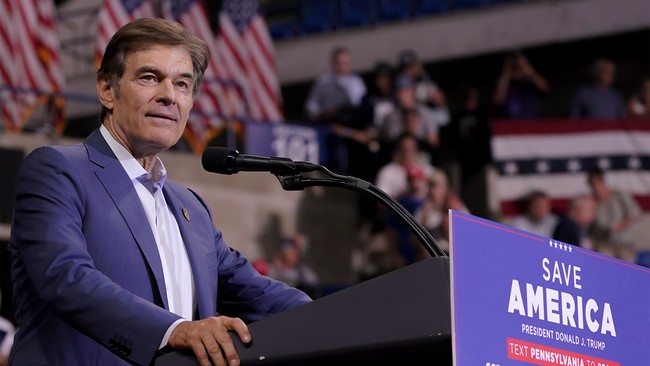Amid Escalating Tensions: US, Ukraine, and Russia
In a surprising decision, Biden authorizes long-range missiles for Ukraine, raising questions about future negotiations and global diplomatic impacts.
Published November 18, 2024 - 00:11am

Image recovered from redstate.com
The geopolitical landscape in Eastern Europe has never been as fluid and contentious as it is now. Recently, outgoing US President Joe Biden approved a significant policy shift by authorizing the use of U.S-supplied long-range missiles by Ukraine, aimed at countering Russian forces more robustly. This strategic shift marks a dramatic deviation in international relations, provoking numerous questions surrounding military action and diplomatic negotiations.
The utilization of the Army Tactical Missile System (ATACMs) by Ukrainian forces represents a frontier shift in military strategies as the conflict between Ukraine and Russia persists. What makes this development crucial is the substantial lead-up to this decision, potentially signaling an escalation in tensions between NATO countries and Russia. Russia has perceived this move as a direct engagement by NATO in the ongoing conflict, given the ties of the United States to the alliance and intelligence operations. Vladimir Putin earlier emphasized, quite sternly, Russia's stance that such moves would equate to direct conflict involvement by NATO nations. Despite these grave warnings, Biden's decision received a tacit nod from notable players within the American polity, acknowledging the strategic necessity amid growing tensions.
This political escalation also arrives amidst notable developments along Ukraine's borders, with Russian collaborations becoming more robust through foreign troop support, notably from North Korea. The deployment of North Korean troops adds a layer of complexity to the conflict, unveiling how international relations interlink regional conflicts. Wash some suggest these developments may be indicative of a diplomatic stalemate, others see potential openings for dialogue and eventual peace negotiations, albeit now further in the future.
The authorization of ATACMs comes at a time when Ukraine is allegedly preparing to target areas within Russia, specifically regions like Kursk. The implications are profound, as Ukraine now possesses an enhanced capability to strike deeper into Russian territories. Such strategic military posturing aims to counteract recent large-scale bombardments on Ukraine, where Russian airstrikes and drone attacks have demolished significant portions of Ukraine's energy infrastructure. This has left the nation grappling with an energy crisis as winter looms. Facing an energy deficit, Ukraine has turned to its allies for assistance, rallying for advanced defense systems and aid to shore up the beleaguered energy grid. This multifaceted crisis prompts substantial reflection over the resilience of strategically critical infrastructure amidst a prolonged conflict.
While Biden's newfound backing for Ukraine's military capabilities has drawn considerable focus, it's also incited an internal political debate in the United States about the prospective implications of such an endorsement. Contrarily, President-elect Donald Trump had expressed tangible skepticism over continued US involvement and the viability of such strategies. Trump and his team have shown inclination towards diplomatic pathways aimed at resolving the protracted conflict, albeit on nuanced terms potentially more favorable to Russia's positions.
On the ground, the continuous assault on Ukrainian infrastructure by Russian forces raises an undeniable humanitarian concern, compounded by the approaching winter. Energy disruptions affect households and critical public services, prompting urgent domestic and international discourse on the foundational needs of safeguarding civilian utilities against military aggression.
This evolving scenario unveils the intricate balance of power and diplomacy that defines contemporary geopolitics. As Ukraine continues to garner international support against aggressive territorial advances, the resilience of its infrastructure remains under threat, underscoring the parallel battles of warfare and supply resilience. The global community finds itself at a crossroads; the encouragement of robust military support must be balanced against the pursuit of diplomatic negotiation, seeking to avoid further escalation towards full-scale international confrontation.
As the winter months approach, Ukraine is pressured to consolidate its defenses and stabilize its energy supply. Clouded in apprehension and guarded optimism, international actors continue to monitor the evolving dynamics. The trajectory of this conflict teeters between intensified military involvement and a protracted diplomatic stalemate, fearing potential ramifications beyond Ukraine's borders.







